Another quieter week on the mainstream HE policy front, fear not we have plenty of relevant news for you to devour. Shadow Universities Minister Emma Hardy has stepped down and ex Universities Minister Jo Johnson has a lengthy report recommending how universities approach their relationships with China and Chinese international students. There are changes to the immigration rules and a new social mobility index.
Ministerial Manoeuvres
Emma Hardy (Labour) has stepped down from her role as Shadow Universities Minister. She stated the ministerial role was preventing her from focussing sufficiently on her constituency business. Emma was an effective opposition shadow minister challenging, frequently questioning and chasing Michelle Donelan throughout.
Matt Western (Warwick and Leamington) replaces her. Prior to his political career he ran a branding and marketing consultancy, worked in the car industry, and served as a local councillor. He studied geography at Bristol University and his wife is a Professor at Warwick University. His political interests are housing, transport and education and he has previously campaigned on education issues. However, at first glance, his presence in the Chamber focuses more on infrastructure and transport than on education.
Research Professional’s daily article applauds Emma Hardy and discusses Matt Western: Western…has big shoes to fill…he has not been a prolific speaker on the subject of tertiary education. In his four years as an MP, he has mentioned the word “universities” on nine occasions and the term “higher education” just three times.
RP go on to examine how Western has spoken about universities in the past:
- There is evidence of passion. [Western:]“As far as I am concerned, education is probably the greatest gift from one generation to the next, and it always has been,” he said during an education debate in July 2019. “But all that is changing, and it is changing incredibly quickly. From the wholesale closure of children’s centres to the pressures on higher education, every facet and every sector of education is in or potentially faces a funding crisis.”
- Several months earlier, Western raised the issue of the impact of Brexit on student recruitment—which suggests that he does have a real interest in the success of England’s universities.
- “Our higher education sector has been one of the great success stories of recent years, and we have seen huge expansion, which has been predicated on our being part of the European Union and attracting the best international students…”
All change? Wonkhe pick up on an article in the Times reporting that there could also be a change to the Universities Minister: The Times reports that universities minister Michelle Donelan is among the women tipped for promotion in a future cabinet reshuffle.
Taskforce: Kate Green, Shadow Education Minister, announced Labour’s Bright Future Taskforce, stating: We’ll be working with young people, unions, education experts and charities to ensure every child can recover from the pandemic and achieve their potential! The details on the Taskforce are here. They include two recognisable HE figures: Andy Westwood from Manchester University and Hillary Gyebi-Ababio NUS Vice President for Higher Education.
Meanwhile on Tuesday a joint DfE/DHSC action group met for the first time comprised of health and education experts to consider the impact of the pandemic on the mental health and wellbeing of children, young people and education staff across England. The group included Education Secretary Gavin Williamson, Vicky Ford (Minister for Children & Families), Michelle Donelan (Universities Minister) and Youth Mental Health Ambassador Dr. Alex George. The group agreed to take forward more action across a range of areas, including boosting the support available to help children and young people move between schools and year groups, and looking at how schools and colleges can target funding and recovery support to ensure that support reaches pupils who need it the most. Ways to improve training, where to focus investment, how to make wellbeing a core part of the school curriculum, university support, and sector-wide mental health and wellbeing training opportunities are reported as having been discussed.
Research news
Committee Business: The Business, Energy and Industrial Strategy Committee inquiry on Post-Pandemic Economic Growth (2 March) contained frank comments on the Government’s R&D Roadmap and Industrial/Place strategies. Dods summarise:
R&D Roadmap
- Mark Pawsey MP asked how the Government’s R&D roadmap could play a part in meeting the target of 2.4% of GDP to be spent on research and development.
- Haldane responded that while a roadmap was better than no roadmap, it was unfortunately lacking details. There were parts of the roadmap that were missing, he continued, particularly links with R&D and place and therefore with the levelling-up strategy.
- Dame Nancy concurred, adding that different approaches to R&D were needed, that took account of place and local need. It was therefore improvement to nuance the roadmap further, she argued.
- Pawsey consequently asked whether the gap between academia and industry could be bridged by UK ARPA to which Dame Nancy responded only if industry was part of the process and involved in funding decisions, and only if the country was better at providing capital for high-risk ideas. The latter point was also an issue of geography, she added, as too much investment was directed towards London.
Place/Industrial Strategy
- Judith Cummins MP asked whether the current industrial strategy took enough account of place in regard to correcting regional economic imbalances and the levelling-up agenda.
- Haldane responded that the 2017 industrial strategy did not have within it to tackle regional inequalities, which in the UK were the highest of any Western advanced economy and getting worse. Moreover, he said, there were no well-defined success metrics nor targets for levelling-up and addressing regional imbalances over time.
- Haldane then called for local industrial strategies to be reviewed and coordinated with a quantified national plan through concrete metrics and measures to deliver correctives to regional economic imbalances.
- Of course Theresa May’s Industrial Strategy stalled when Boris became PM and the Committee comments above are more in line with the new Business Secretary’s, Kwasi Kwarteng, scrapping of the Industrial Strategy Council, and the overall industrial strategy policy. Although Labour remain staunchly committed to their vision of an Industrial Strategy.
International Women’s Day: Research Professional have several interesting articles relating to Monday’s International Women’s Day. Have a peruse through their content.
On research culture:
A worsening UK research culture has hit women hardest. An interesting article which looks back across Catherine Mitchell’s (Professor, Exeter) 30 year research career.
- …in many ways it was an easier time to be an academic; to find one’s own niche, and to pursue one’s own agenda… there was far less micromanaging by universities. You could apply for money without having to go through internal peer review, or without worrying about your contractual status, age or seniority. National research evaluations—what has become the Research Excellence Framework—cast a much smaller shadow. Even though there was an expectation, which persists in some places, that early-career researchers would work on senior colleagues’ contracts for no extra pay, and often no reward, it was reasonably easy to become independent.
- These days, as I near the end of my university career, there’s less overt sexism. But it pains me to say that, in the 30 years since I started working in universities, I am not sure they have become much more friendly places for women.
- I’ve seen little progress on helping academics balance work with caring responsibilities, or on dealing with unconscious bias. In some areas, such as the influence of the REF and competition for jobs, conditions for female researchers have become harsher.
- University life nowadays is dominated either by trying to get a job or, once in post, by the demands of the REF and the institution’s wider key performance indicators. Success depends on the amount of effort one is able to put in to producing papers, writing bid applications and creating impact.
- We know that grant application and peer review processes are biased against women. Funders have moved towards fewer, bigger grants, which tend to go to the usual (read: male) suspects. This creates barriers to entry that are bad for innovation in research, and bad for diversity in all its forms.
- …The gap between what counts as inherent and acceptable competition, both inside and between UK universities, and what crosses over into bullying is narrow.
- What solutions might there be?… A good first step would be to listen to women. We know little about how female academics have found academia over time, or what strategies they have used to navigate it. We need to understand their lived experience and their needs, and we need more quantitative data on their working lives.
- This should lead to targets, including for improving the gender balance on peer review and application panels, and plans for monitoring progress. At the same time, research councils and universities should place less emphasis on standard measures of productivity and impact that are biased against some researchers.
- And if we really want diversity in research, that needs to be reflected in funding decisions. The government’s stated goal of a diverse academic body needs to be backed up with money, along with changes to university regulation and incentives.
- University cultures have built up over centuries around the male academics who created them. Perhaps I shouldn’t be surprised if rebuilding that culture takes longer than a single working lifetime but, unfortunately, I don’t think such a goal is being even widely discussed.
And Amanda Solloway (Science Minister) writes about support for 40 of the UK’s most trailblazing female innovators, through our flagship Women in Innovation Awards, to help develop and scale up their business innovations.
Over on Wonkhe a blog addresses why few women are involved in university spinout companies: Scaling up gender diversity in the university spinout ecosystem.
Quick News
- Policy experience and impact – Research Professional cover the Royal Society’s scheme which has paired 29 researchers with politicians and civil servants: The scheme, which launched in 2001, aims to build bridges between parliamentarians and leading scientists in the UK…Royal Society president Adrian Smith said it “equips scientists with an insight into the workings of parliament, helping them to approach and engage with decision makers”… “Science and technology have a vital role to play at the heart of informed policymaking, and we should continue to build on what we have learnt during the pandemic to inform decisions on other pressing matters of our time.” The researchers will commence with a virtual week in Westminster engaging with relevant Ministers and high profile figures, they will also switch places with politicians and take part in a mock select committee session. The week will close with a parliamentary roundtable chaired by the Royal Society’s vice-president Linda Partridge on the role research and innovation can play in the levelling-up of the UK
- Gender Equality – Wonkhe report: In celebration of International Women’s Day, the UK government has announcedthe creation of the G7 Gender Equality Advisory Council (GEAC). The GEAC will lead the UK’s gender equality work at the G7, with a focus on women’s contribution to science and technology. Women and equalities minister Liz Truss will act as ministerial lead, with journalist Sarah Sands appointed as chair. Full membership of the council will be announced in the coming weeks.
- Funding Shortages – Research Professional (RP) highlight that UKRI will cut some of their multi-million pound projects which are currently funded through the international aid programmes because their allocation of the UK aid budget for the new financial year is too small. A UKRI spokesperson confirmed to Research Professional News that for the financial year 2021-22, the agency is facing a shortfall of £120 million between its Official Development Assistance (ODA) allocation—which has been reduced to £125m—and its commitments to grant holders. UKRI is now reviewing all its ODA funding commitments for the year. This will affect projects funded through both the Global Challenges Research Fund (GCRF) and the Newton Fund… UKRI is writing to university vice-chancellors to set out the extent of cuts required at their institutions and will be asking universities to decide how to spread cuts across their research projects…UKRI: We will endeavour to work with grant holders to mitigate these cuts as far as possible by reducing spend in 21-22 and reprofiling spend into future years…ODA-funded projects awarded by UKRI but which have not started are likely to be cancelled or not funded at the promised level. Read more here. RP also state that there are concerns that last week’s budget didn’t confirm how Horizon Europe (£2 billion) would be paid for nor the new Advanced Research and Invention Agency (£800 million) and worry that UKRI may be expected to prioritise existing funding towards these endeavours. RP’s article goes on to explore whether the 2.4% R&D spending target is in jeopardy and ex-Universities Minister Chris Skidmore weighs in on the topic.
- QAA published new advice on doctoral standards for research students and supervisors as part of its ongoing COVID-19 support and guidance. The advice was produced in response to concerns expressed by PhD students about the impact of the COVID-19 pandemic on their ability to carry out research and complete their studies on time. QAA state it clarifies national expectations for doctoral academic standards and aims to reassure students who have had to replan and reschedule their research to accommodate the obstacles they have encountered. It also makes it clear that PhDs awarded during or in the aftermath of the pandemic will still be of the high standard that we come to expect from UK higher education. The resource includes a Q&A for personal reflection and to inform discussions between doctoral students and their supervisors.
BME & Postgraduate Research
Research England and the OfS have announced Dr Anne-Marie Imafidon MBE as Chair of an expert access and participation panel. The panel will support a joint funding competition to improve access and participation for Black, Asian and minority ethnic students in postgraduate research study. It is an £8 million fund and will support bids that aim to address the persistent inequalities faced by Black, Asian and minority ethnic students, in accessing and participating in postgraduate research study. Dr Imafidon has also been appointed to the Research England Council for a three year period from April 2021. Dr Imafidon said: I am ready to get working with Research England and the Office for Students on this funding competition. It’s part of the necessary steps that need to be taken towards systemic change for postgraduate research. I am looking forward to seeing creative and ambitious plans from universities, and those close to this issue, to bring about significant and lasting change.
Research England and the OfS have invited applications to act as an expert panel member for this funding competition. Two postgraduate research students and four general panel members will be appointed. The deadline for applications is the 12 April.
Steven Hill Director of Research for Research England said: We are excited to open this opportunity for expert panel members. The panel will play a crucial role with this funding competition, firstly in helping us assess the bids and then providing advice and guidance as the funded projects progress. Research England and the Office for Students are determined to keep equality, diversity and inclusion central to this funding opportunity and we recognise that the expert panel plays an important part of this. We want to recruit people with lived and learnt experiences relevant to the aims of the opportunity and who can call on those experiences, when making funding recommendations and providing advice. We are determined to continue to think about our own processes, to ensure that they are inclusive and in line with aims of the competition.
Chris Millward, Director for Fair Access and Participation at the OfS, said: As part of the recruitment campaign, the panel is looking for six members, two of whom will be postgraduate research students. The insight provided by these students will be crucial in ensuring that this process is an effective one, and I hope this presents as an exciting opportunity to shape an innovative and important programme.
Immigration rules change
The Home Office confirmed that the new Graduate route will open to international students for applications on 1 July 2021, allowing them to remain in the UK post-study. International students must have completed an eligible course at a UK higher education provider which has a track record of compliance with the government’s immigration requirements. Students on the Graduate route will be able to work or look for work after their studies for a maximum period of 2 years, or 3 years for Doctoral students.
You can view the Statement of Changes and the explanatory memorandum here.
The Graduate route will be unsponsored, meaning applicants will not need a job offer to apply for the route. There will be no minimum salary requirements nor caps on numbers. Graduates on the route will be able to work flexibly, switch jobs and develop their career as required.
Coronavirus concessions for students unable to travel to the UK due to the pandemic have also been extended, and the guidance has been updated. Applicants who began their studies in Autumn 2020 will now have until 21 June 2021 to enter the UK (updated from 6 April 2021) in order to be eligible for the Graduate route. Students who began their studies in January or February 2021 will need to be in the UK by 27 September 2021.
The changes announced by the Home Office also include
- Adding new occupations to the Shortage of Occupation List (SOL), including MFL teachers
- Expanding the Academic Technology Approval Scheme to include those coming to the UK under a sponsored work route to work in an occupation which includes postgraduate research in an academic environment
- Adjustments to the EU Settlement Scheme (EUSS) and the EUSS family permit
Kevin Foster, Minister for Future Borders and Immigration:
- … We are also giving effect to some of the recommendations made by the Migration Advisory Committee in its review of the Shortage Occupation List (SOL) in September 2020. We are adding eight occupations in the health and care sector as well as modern language teachers to the UK-wide SOL. We are removing chefs from the SOL, although they will continue to be eligible for the Skilled Worker route due to the expanded skills threshold.
- … We are updating the salary thresholds to include a minimum hourly rate to safeguard against employers who may require employees to work longer hours to make up for the lower rates of pay. We are including a transitional arrangement for those already on the Skilled Worker route in a job paying less than the minimum (£10.10 per hour) to avoid anyone losing their job as a result of the change.
- ….We are expanding the Academic Technology Approval Scheme to include those coming to the UK under a sponsored work route to work in an occupation which includes postgraduate research in an academic environment, in certain sensitive subjects where an individual’s knowledge could be used in programmes to develop advanced conventional weapon technology, weapons of mass destruction (WMD), or their means of delivery. This change is designed to protect UK research from exploitation and from inadvertently supporting the proliferation of WMD or advanced conventional weapon technologies.
- Some adjustments are being made to the EU Settlement Scheme (EUSS) and the EUSS family permit. These will ensure their continued operability and the full implementation of the Citizens’ Rights Agreements beyond the 30 June 2021 deadline for applications to the EUSS by those EEA citizens and their family members resident in the UK by the end of the Transition Period. By 31 January 2021, more than 5 million applications to the EUSS had been received and more than 4.5 million grants of status had been issued.
- We are making changes to the Global Talent route to enable applicants who have reached the pinnacle of their careers to bypass the endorsement requirement and instead qualify if they have received a prestigious prize. An initial list of prizes has been identified and agreed by the endorsing bodies for the route based on their expert opinion and represent the leading awards in their respective fields. Applicants meeting this requirement will not be required to apply for endorsement, which should expedite the application process.
International: China
The UK’s reliance on China was big news on Tuesday. Wonkhe: China is set to overtake the US to become the world’s biggest spender on research and development – and the UK’s most significant research partner –11% of UK’s research output, 20+% of high impact research, 30% in the three key areas of automation and control systems; telecommunications; and materials science/ceramics.
It was triggered by a report previous Universities Minister Jo Johnson co-authored with Kings College London and other organisations: The China question: Managing risks and maximising benefits from partnership in higher education and research. The report considers the balance of risk in the reliance and close links with China. Key excerpts:
- This heightened degree of integration makes any idea of decoupling from China both unviable and unlikely to be in the national interest but does signal the need for a clear and strategic approach to research collaboration, capable of mitigating real risks.
- The research highlights the poor quality of data on international education and the need for greater awareness of its value to the UK economy. HE exports to China represent the UK’s single largest services export to any country. The government should avoid caps on international students in aggregate or any form of discrimination by nationality.
- But reliance on significant tuition fee income from Chinese students to cross-subsidise loss-making research creates a strategic dependency and potential vulnerability. The sector regulator, the Office for Students, should more actively monitor this risk and require institutions to have plans to mitigate it, including through recruitment diversification strategies.
- …China’s own HE system is likely to place a significant downward pressure on student enrolments internationally over the medium term. China, over the next decade, is likely to consolidate its appeal as a global destination for HE.
- Our research shows that Chinese students in the UK have very high overall satisfaction rates and a very low drop-out rate, indicating that UK universities are in a strong position to attract a significant proportion of those students who may still choose to study beyond China.
- …In its approach to HE in China, the UK should keep in mind the power and reach of China’s own international HE programmes, which have the potential to reshape the global axis of power in HE and research.
- China… [has] long-term strategic and well-resourced policy to promote China’s HE system and its broader economic and diplomatic interests…Such developments also undermine bullish attempts to unilaterally disengage from China which assume the continued dominance of UK/US HE in both the international student market and R&D. Instead, policymakers should plan on the basis that China’s HE capacity and market share will continue to grow, while proceeding with caution to ensure collaboration does not come at the cost of research autonomy, surveillance, or continued human rights abuses. New strategies can and need to be implemented to engage with some of the reputational risk, research integrity and ethical standard differences.
Read the full document to explore in further detail.
Media coverage from – the Times and the Guardian.
Research Professional briefly cover the report and highlight that three of the report’s authors—including former universities and science minister Jo Johnson—wrote an opinion piece on the topic last week, in anticipation of today’s publication.
IES: Wonkhe have a blog on the International Education Strategy.
Social mobility
Index Ranking
The Higher Education Policy Institute (HEPI) published a report by Professor David Phoenix (Vice-Chancellor of London South Bank University) proposing a ranking of the impact that universities have on social mobility.
This is an alternative take on the usual rankings and league tables, and in theory ought to support the government’s social mobility agenda, although of course it doesn’t adopt the same limited definition as the government when looking at positive outcomes – where the focus is on absolute numbers completing the course, getting “graduate” employment and earning above average compared to your peers doing the same course, without taking background or context into account.
The report has devised an English Social Mobility Index:
- We started from the basis that the background of the student, their progression through an institution and their achievement after graduation are key to an institution’s impact on the social mobility of an individual. The overall impact of the institution can then be measured both in the numbers of individuals advanced and the distance they have collectively travelled.
The methodology uses the Index of Multiple Deprivation (not POLAR to assess the background of the students, continuation and Longitudinal Education Outcomes (LEO) data, as the OfS propose to use in their quality framework and the TEF (although they may also use Graduate Outcomes data). But unlike the OfS, which is proposing to use absolute metrics, it not only adjusts for the background of the students but also for regional differences. The author also notes that there is additional data in the Graduate Outcomes set relating to wellbeing which might be useful.
So while this is proposed as a starting point for a ranking rather than an “oven ready” league table, of course it is interesting to see what the outcomes are – they list the top 40.
And the report has a number of recommendations, including on that proposal of the OfS to ignore background and context when assessing quality:
- ….the Government response to Dame Shirley Pearce’s Independent Review of the Teaching Excellence and Student Outcomes Framework instructs the OfS to consider ‘if and how educational gain can be reliably measured’. The English SMI could form a useful starting point in doing so.
- The OfS has also recently consulted on changes to the regulation of quality and standards within higher education. The proposals include setting numerical baselines which ‘will not be adjusted to take account of differences in performance between demographic groups’. The creation of an index to measure the value-add of an institution should give them cause to rethink this approach.
- Universities should utilise the SMI, or an alternative measure, to reflect on their Access and Participation Plans and elsewhere on their strengths and weaknesses in effecting social mobility among their graduates. The OfS should consider this or an alternative measure in assessing the success of Access and Participations Plans. A measure of social mobility, such as this, should be promoted as an antidote to the detrimental pressure of newspaper league tables, whose undue focus on entry tariffs is inherently detrimental to social mobility. Indeed, compilers of university league tables should be encouraged to utilise this or an alternative measure in their assessments of universities and the Government should consider including it on the DiscoverUni website.
- The higher education sector should work together to refine and improve this model with the aim of accurate reflection on its contribution to social mobility.
- The Government should reflect more widely on the outputs of this measure to inform policies on the higher education sector, particularly with regards to decisions on funding, value for money and quality.
- Recognising the ‘pupil premium’ associated with enhancing social mobility, the Government should invest in those institutions which demonstrate high returns in their approach to social mobility.
The new rankings received a quick response on HEPI from Peter Scott, Commissioner for Fair Access in Scotland and a Professor at UCL. The response is well worth a read and he politely adds context where he feels Phoenix’s index could be better or more granular. Overall the tone is supportive with a push for more to create a better overall ranking (and acknowledging it is better/fairer than the current Government intention): More, much more, in a similar vein could be said about the shortcomings of many more established league tables. That doesn’t stop them getting noticed, and obsessively acted upon. The need, therefore, is not to undermine – and inevitably marginalise – the social mobility index but to improve and strengthen it. We badly need league tables of universities that do not essentially play back pre-existing advantages.
Happily David Phoenix then responds again to Scott’s comments. Again the response is engaging and polite:
- I would concur with the general scepticism he [Peter Scott – in the first response] expresses about league tables. He has also highlighted perhaps a more serious or controversial question. Is it right to compare different ‘kinds’ of contribution to social mobility? Is, for example, helping to provide a relatively small number of disadvantaged students to achieve great things inherently better or worse than taking a large cohort from disadvantage into making a perhaps more modest contribution to the community, their families and the UK economy?
- Given that every higher education institution would, we hope, seek to make a contribution to the social mobility of its students; then a measure that weighs that contribution, however it is made has, I think, some merit. Principally, that merit is in helping us all to measure what we are doing, whilst allowing us to do it in the manner to which our institution – taking account of its place in history and geography – is best equipped, rather than seeking all institutions to do all things.
But is Chris Millward listening? And is he willing to roll his sleeves up and delve into the granularity when measuring HE institutions progress within disadvantaged access, participation and outcomes? Of course there will be winners and losers with any model and decisions will likely be tied up with how TEF will mutate for future use.
Treasury Talks: Wonkhe have reported: Paul Blomfield MP, Chair of the APPG for Students, has secured a meeting with the Chief Secretary of the Treasury on student support following a question to Steve Barclay at Treasury Questions yesterday morning in the House of Commons. The APPG will make the case for additional student hardship support and payments in compensation for lost learning opportunities.
Here is what was actual said during Oral Questions:
- Blomfield: As some students return to campus this week, those studying in Northern Ireland will each receive £500 support. The Welsh Government have provided hardship funding equivalent to £300 per student. In Scotland, it is £80. For those studying in England, hardship funds equate to just £36, so does the Chancellor not accept the case for equal support across the UK? Students have lost vital income from part-time jobs, paid rent on unused accommodation and faced other costs, so will he meet the all-party parliamentary group for students to discuss our recommendations for hardship support and funding to make up for missed learning opportunities?
- Steve Barclay (Chief Secretary to the Treasury): I am always happy to meet the hon. Gentleman and discuss that matter in more detail. As he will recognise, one of the features of the Budget was the number of UK-wide measures, but at the same time he is quite right to point to the additional £2.4 billion of Barnett consequential funding that was allocated to the devolved Administrations, which has enabled them to apply further support as a result of the fiscal strength that is offered by the UK Treasury. I am of course happy to discuss the specific point with him in more detail.
We’ll wait to see if anything more than lip service or recycling funds already declared comes out of this.
Social Mobility Barometer 2021
The Social Mobility Commission published their regular (annual YouGov) 2021 Social Mobility Barometer which highlights public attitudes to social mobility within the UK. Unsurprisingly they state it unveils deep concern that social division in Britain has increased as a result of the pandemic.
The findings coincide with growing evidence that those from the most disadvantaged backgrounds are being most affected by the pandemic. Young people from the poorest backgrounds are losing their jobs, while families are trapped in cramped housing, sometimes unable to afford basic necessities. Children from disadvantaged families, often without digital access, are falling behind at school.
Overall:
- 48% of the public consider themselves to be working class, 36% middle class, 0% upper class. Those aged 50 to 64 are most likely to describe themselves as working class (54%).
- 79% of adults across all regions say there is a large gap between social classes in Britain today, while 11% say there is a small gap. Those who live in Scotland and those in Northern Ireland are most likely to think there is a large gap (both 84%).
- 39% of the public think it’s getting harder for people from less advantaged backgrounds to move up in British society. 28% say it’s staying much the same, while 23% say it’s getting easier.
The impact of coronavirus:
- 56% of the UK adults think the coronavirus outbreak has increased inequality in Britain: 33% by ‘a lot’
- 55% think the pandemic has had the biggest impact on mental health. 44% cite lack of social contact while 26% say employment opportunities. Women are more likely than men to believe that the effect on mental health is one of the biggest impacts of the coronavirus pandemic and that it should be a priority in the recovery. (59% vs 51% and 51% vs 42% respectively).
- 47% of UK adults believe that the government should make employment opportunities one of their priorities as the country recovers from the pandemic. Other priorities should include mental health (46%) and education (33%).
Regional differences:
- People in the South are much more likely to describe the opportunities for progression in their area as ‘good’: 74% in London; 31% in the North East.
- Three quarters (74%) of adults believe there is a ‘very’ or ‘fairly’ large difference in the opportunities available in different parts of Britain today. 16% said there was ‘not much’ or ‘no difference at all’.
Generational difference and impact of background:
- People aged 25 to 49 are least likely to think that everyone in Britain has a fair chance to go as far as their talent and hard work will take them (28%). This contrasts with 47% of people aged 65+.
- Older generations are more likely to believe they are better off than their parents, on a number of different measures. A net total of 72% of people over 65 say they received better education than their parents – compared with 48% of those aged 18 to 24. (Net total is the total who are ‘better off’ minus the total who are ‘worse off’).
- Young people are more likely than their older counterparts to think that it’s becoming easier for people from less advantaged backgrounds to move up in British society. 35% of 18 to 24 year olds say it’s becoming easier, compared with 19% of 25 to 49 year olds.
Ethnic differences:
- Black and minority ethnic (BME) people are more likely than white people to say that their background has hindered their career. 23% of BME respondents say that their family background is a disadvantage for progression at work – compared with 14% of white respondents.
- 58% of BME respondents say that employers should have to take action to try and improve social mobility. This is compared to the UK average of 42%.
Government support:
- The public says that the government is not providing enough support to those who are ‘just about managing’ (64%) and the least well off (52%). When asked which institutions should be doing more to promote social mobility and provide opportunities for everyone, 53% say central government while 42% point to local government.
- When asked which institutions are best equipped to have an impact on social mobility and ensure opportunities for all, the most popular answer was ‘schools’ (46%). This was followed by central government 37%, and employers 36%.
Mind the gap – or not
NEON report on a Schools Week article which stated that former permanent secretary at the Department for Education, Jonathan Slater, claimed that efforts to narrow the attainment gap between disadvantaged pupils and their better-off-peers ceased to be a “main focus” for the Department in 2015. The comments were made during a discussion at the Foundation for Education Development summit held yesterday. Slater said that after 2015 the focus on the attainment gap, which was “more the contribution of the Lib Dems” in the coalition government, diminished. The article is a quick read.
Also on the gap. NEON report: A new report by the Education Policy Institute (EPI), funded by the Nuffield Foundation, finds that poorer students in sixth forms and colleges trail their more affluent peers by as many as three A level grades… The new exploratory research finds that the disadvantage gap is substantial during the 16-19 education phase, with poorer students continuing to see far worse educational outcomes than their better off peers. The disadvantage gap varies considerably across the country: poorer students are the equivalent of five whole A level grades behind their more affluent peers in some areas of England. In other areas, poorer students are level with, or even ahead of, their more affluent peers. The new findings also provide evidence for the need for new interventions aimed at reducing the gap in 16-19 education. The report concludes that there is a strong case for additional government funding for 16-19 education.
Participation & Outcomes KPIs
The OfS have updates on:
- key performance indicators, covering gaps in participation and outcomes, provider and subject diversity, employer perceptions of graduate skills, and the proportion of students who achieve first class degrees. There are some nice charts on this link.
Key findings from the new data include:
- The gap in participation at higher tariff universities has narrowed slightly.
- Black students were less likely than white students to gain a first or upper second- class degree. At some institutions, the gap in attainment was more than 20%. The overall gap in attainment has closed from 24.7% in 2015-16 to 18.3% in 2019-20.
- There are also gaps in continuation and attainment rates for groups of disabled students. 90% of students who do not report a disability continued their studies into 2019-20, compared with 87% for students with a mental health condition. Students with a social or communication impairment were 4.8% less likely to graduate with a first or upper second-class degree than their peers who do not report a disability (78.8% compared with 83.6%).
There are also interactive maps showing how likely students are to participate in HE according to where they live, and how this varies across the UK.
Chris Millward, Director for Fair Access and Participation at the Office for Students, commented: Today’s update to the data dashboard demonstrates the progress already being made across the sector, with access gaps continuing to narrow. There is much more to do here – and the cumulative efforts of universities and colleges through their access and participation plans promise much stronger progress in the coming years…While there is evidence that the gap in attainment for black students compared to their white peers is closing, it remains far too high. At 96 of the 97 higher education providers for which the dashboards report ethnicity attainment gaps, black students’ attainment is lower than we see for white students. Many providers have gaps of over 20 percentage points, with some even higher. Other gaps – including for students with certain disabilities – underline how essential it is to focus not just on supporting students to get into higher education, but also to succeed in and beyond it.
Admissions / Exams
Exams – Wonkhe report: Speaking before the House of Commons Education Committee acting chief regulator for Ofqual Simon Lebus admitted that exams for GCSE and A levels were not likely to return to normal in 2022. Lebus said that the process of recovering lost learning will take several years as he and his colleagues defended Ofqual’s approach before the committee. You can watch the whole session on Parliament TV. The Times, the Independent, and the Mail cover the hearing.
Budget
Dods have produced a briefing summarising the Budget decisions by sector. Education and Skills is covered from page 15. Excerpts:
The Research & Development sector, as well as universities, will welcome the consultation on R&D tax credits [see page 64], the rolling out of the Levelling Up Fund and the launch of the Community Renewal Fund to bridge the move over to the UK Shared Prosperity Fund – particularly as higher education providers shift their strategic focus to their civic roles.
Reform to the Global Talent visa, and the introduction of an ‘Innovator’ visa will also be promising news to both R&D and HE, as the combination of Brexit and the pandemic has inhibited their global recruitment abilities.
The Government is modernising the immigration system to help the UK attract and retain the most highly skilled, globally mobile talent – particularly in academia, science, research and technology – from around the world. [Pages 62-63.] To do this, the Government will:
- introduce, by March 2022, an elite points-based visa. Within this visa there will be a ’scaleup’ stream, enabling those with a job offer from a recognised UK scale-up to qualify for a fast-track visa
- reform the Global Talent visa, including to allow holders of international prizes and winners of scholarships and programmes for early promise to automatically qualify
- review the Innovator visa to make it easier for those with the skills and experience to fund and innovative business to obtain a visa.
Dods also have a budget webinar recording and a shorter write up on the budget from a wider range of expert and media commentators.
Students & Covid
Guidance: The DfE have issued another guidance update. Students are permitted to return home for the Easter break, although Government recommend they remain in situ to reduce transmission. Non-practical courses should continue to be taught online (no update on this expected until after Easter). Although the Government notes that some of these students may need to return to term-time accommodation prior to in-person teaching resuming. HE institutions and students will be given a weeks’ notice ahead of any further relaxation of restrictions. Covid testing expectations and frequency when students return to campus remain the same. There is an update on new and returning students travelling from overseas.
Student Covid Insights Survey
The Office for National Statistics (ONS) have published experimental statistics for the Student Covid-19 Insights Survey (SCIS) in England, which includes information on the behaviours, plans, opinions and wellbeing of HE students in the context of guidance on the pandemic. The main points as summarised on the ONS website:
- Over a quarter (26%) of students reported feeling lonely often or always, compared with 8% of the adult population in Great Britain over a similar period.
- Almost two-thirds (63%) of students indicated that their well-being and mental health had worsened since the start of the autumn term 2020; this has remained stable since January 2021.
- Average life satisfaction scores for students have improved following a dip in January 2021 (8 to 18 January 2021) from 4.8 to 5.1 out of 10; this remains statistically significantly lower than the average life satisfaction scores for the adult population in Great Britain at 6.4 over a similar period.
- An estimated 85% of students said that they were currently living at the same address as they were at the start of the autumn term 2020.
- Of those students who have moved address since the start of the autumn term 2020, 43% are planning on returning to their original address before the end of the academic year and 55% are not planning on returning.
- Of all students, 15% said that they expected to stay with people who are not part of their current household for a period of two weeks or more, over the next two months.
More information including charts illustrating the data is available here.
Statistician Tim Gibbs, ONS, stated: Students have continued to have a tough time into the new year, with covid restrictions curtailing the things they can do, with many reporting dissatisfaction with their academic and social experiences at university. Over a quarter are feeling lonely often or always, a significantly higher amount than the adult population. Nearly two-thirds still report a worsening of their well-being and mental health since the beginning of the autumn 2020 half term. Though their life satisfaction has improved slightly since January, similar to the adult population, students’ life satisfaction remains far below the national adult average and students report experiencing greater anxiety than adults. We will continue to monitor student responses to better understand how they are feeling as restrictions are gradually lifted in the coming months.
Complaints
The Office of the Independent Adjudicator for Higher Education (OIA) published a second batch of case summaries of complaints arising from the impact of coronavirus ( see here and here). Most cases relate to the 2019/20 academic year, and some have been about accommodation, most commonly raising concerns about paying rent while not living in the accommodation during restrictions. They note that they can only look at accommodation owner by a provider, and that most providers decided not to charge students for the 19/20 academic year.
The OIA state it is good practice to put in place a policy for considering when it might be appropriate to waive charges, and find this to be the case in most providers when looking at whether they have acted fairly in the circumstances.
There were also complaints raised about the cumulative effect of industrial action and the pandemic – in such cases, they considered whether the provider did enough to mitigate disadvantage to their learning outcomes, and whether the provider delivered something broadly equivalent to usual arrangements.
Other students brought complaints that their provider has not been able to deliver practical experience – in these cases, they find the alternatives did not work and students didn’t have the learning experience they reasonably expected. As such, they’ve recommended the provider should pay some compensation.
Felicity Mitchell, Independent Adjudicator, OIA said: The case summaries reflect the hugely challenging and complex situations that students and providers have faced as a result of the pandemic. Where possible we try to reach a settlement and we are pleased that in many cases providers and students have been very open to this. The summaries illustrate our approach to deciding what is fair and reasonable in these kinds of situations. We hope they will be helpful to providers and students.
Turing
Wonkhe describe the latest on the Turing scheme: Applicants to the Turing Scheme can now access support for their application, including a programme guide, answers to frequently asked questions, and a series of webinars where they can ask their own questions. The guidance reveals that there will be no tuition fees support, that travel support will work similarly to Erasmus+ but only for students from disadvantaged backgrounds, and that living costs will be available at a lower rate than Erasmus+. FE week and the National have the story. There’s also the Herald and Twitter (although the comments on the featured tweet suggest mixed opinions).
As the links highlight there has been vocal disgruntlement and criticism over the lack of financial support. The DfE has even provided a rebuttal stressing the positive attributes of the new scheme.
Criticism of the Turing programme continued at PMQs from Scottish MPs Kirsten Oswald and Alyn Smith. Alyn asked the PM to apologise to students for “limiting their life horizons against their will” with the Turing Scheme.
There’s also a parliamentary question on Turing this week: Turing – identifying the geographical areas of disadvantage and actively targeting and promote the Turing scheme in those areas.
- Response – Michelle Donelan: The Turing Scheme’s delivery partner, a consortium of the British Council and Ecorys, will actively promote the scheme across the whole of the UK, concentrating on areas of socio-economic disadvantage and lower social mobility, including the department’s identified Opportunity Areas, because disadvantaged students have been typically under-represented when it comes to taking advantage of international education opportunities. The UK-wide scheme is demand-led. However, the qualitative assessment criteria are positively weighted towards projects that reach out to groups with fewer opportunities.
Other news
Race Equality: Advance HE blog on the findings of Phase 2 of the Race Equality Charter Review.
Digital & online learning: Wonkhe have a blog by Jisc: Listening to students helps make a better online experience for everyone. Wonkhe reports that:
- A Jisc surveyof more than 21,000 higher education students has found that just 36 per cent agreed that they were given a chance to be involved in decisions about online learning – suggesting that the sector could do more to understand and respond to student needs in a visible and inclusive way.
- Despite this, 66 per cent of students were positive about the quality of online learning, and just over half praised the design of online learning materials. The survey found that online collaborative tools had been less well used, despite this being a strong student preference. And though 62 per cent of students were positive about online learning support, just 42 per cent reported receiving guidance about the digital skills they would need – and just one quarter reported that these skills had been assessed before study began.
Wonkhe also have a related blog: For digitally capable students, the sky’s the limit – Mark Andrews distils learning from a global community of universities working to infuse digital literacy into the curriculum.
Dods expand on Wonkhe’s summary listing their helpful key points:
- Nearly seven-in-ten students surveyed rate the quality of online and digital learning as either ‘best imaginable’, ‘excellent’, or ‘good’ (68% of both FE and HE students).
- Support for FE learners whilst learning online, also comes out on top, with almost three quarters of learners rating support given to them as ‘good’, ‘excellent’ or ‘best imaginable’.
- Both HE and FE students surveyed noted the huge benefits of flexible learning, with lecture recordings proving helpful for note-taking and scheduling learning around other aspects of life. Some FE learners enjoy the comfort and convenience of studying at home, as well as feeling more in control.
- Identifying negative aspects of remote learning, students reported challenges such as technical issues, difficulty concentrating, unsuitable study environments, isolation, wellbeing and mental health issues to name a few.
- To tackle these challenges, learners want colleges and universities to:
- Get the basics right – this includes wifi (on campus and elsewhere), reliable hardware and software, clear navigation to learning content, timetabling and session scheduling, audio and lighting of online sessions
- Make learning sessions more interactive
- Record lessons and make them available soon after delivery to aid personal learning preferences, revision and catch up
- Train and support lecturers to use online tools in a pedagogically sound and inclusive way
- Think about the pace of delivery (too fast/too slow) and consider shorter bursts with regular breaks
- Create opportunities to talk to/ask questions of lecturers and fellow learners, and give timely individual and group support
- Improve communication – reminders of when sessions were going to start, when assignments were due, an accessible list of frequently asked questions
Sarah Knight, Jisc’s head of data and digital capability, comments:
- It’s thanks to staff that the rapid transition to ‘digital-first’ teaching has been possible, and their achievements deserve real celebration. It’s brilliant to see that students are reaping the benefits of their hard work. Students too, have had to face an entirely new studying format, and the transition can’t have been easy.
- Jisc’s digital experience insights surveys are designed to support colleges and universities to understand and improve the digital experience of their students, and to provide baseline and benchmarking data to inform digital strategies across the sector. We hope this data pulse helps universities and colleges see clearly where students are benefiting, and where they could be better supported.
There are two different insights surveys – FE here and HE here.
Graduate Labour Market Outcomes: Wonkhe report that The Office for National Statistics has published an analysis of Graduate Labour Market Outcomes for the first three quarters of 2020. The report shows that recent graduates have struggled to find work during the pandemic, with a record 12 per cent of recent graduates unable to find work during Q3 of 2020. However, graduates of all ages remain more likely to be in work, and are increasingly likely to be found in highly skilled roles – though there’s some evidence that some graduates have taken less skilled work during the pandemic, and fewer graduates are overskilled for their current role. Look at the findings on Wonk Corner. The Financial Times and the Mail also cover the data.
Free speech: The House of Commons Library has published Freedom of speech in universities – is there a problem? A research briefing on the legal framework for protecting freedom of speech in higher education, outlining the current debate and the government’s proposals for change. There are also two parliamentary questions on free speech: Whether the free speech duties the Government intends to place on universities will prohibit the implementation by universities of the duties placed on them under the Prevent programme. AND: Whether the Government’s proposals to champion freedom of speech in universities extends to (1) hate speech, and (2) antisemitic speech, as defined by the International Holocaust Remembrance Association.
Healthcare Students: The House of Commons Library has a report on funding for healthcare students in England. And Labour say: Research by the House of Commons Library for the Labour Party indicates that Nurses, Physiotherapists, Occupational Therapists and other clinicians will be hundreds of pounds worse off in real terms every month if the Government’s recommendations of a 1 per cent pay increase are implemented.
Decolonising the curriculum: Michelle Donelan, Universities Minister, participated in a Daily Telegraph discussing decolonising the curriculum. Dods summarise the session and reaction:
- In one part of the discussion, she commented: The so-called decolonisation of the curriculum is, in effect, censoring out history. A fundamental part of our history is about learning from it – not repeating the mistakes, being able to analyse and challenge why those events happened, how those decisions were made, so that we don’t repeat those actions in the future. And I also wonder, if we’re going down this road of taking bits out, are we then going to end up putting bits in that we wish had happened? It’s a very dangerous and off road to go down. It has no place in our universities, I would argue, and it has no place in academic study.
- Responding to this particular clip, the University and College Union (UCU) said, This government is so committed to academic freedom that its ministers are trying to dictate how history should be taught and written.
- Donelan went on to say, And it just doesn’t work when governments try to remove elements of history. Look at the Soviet Union, look at China. There are multiple examples where it’s been tried. It doesn’t work.
- Charlotte Lydia Riley, a lecturer in 20th century British history at the University of Southampton, tweeted: This historian says Michelle Donelan is talking out of her arse… she doesn’t understand decolonising the curriculum, she doesn’t understand the purpose of history and she seems a bit hazy on the Soviet Union.
- The topics of academic freedom and decolonising the curriculum will undoubtedly continue to be discussed for some time, especially as the Government introduces its new legislative proposals for free speech on campus.
…The Women and Equalities Committee, along with the Petitions Committee, continue to run their non-inquiry session into ‘Black history and cultural diversity in the curriculum’. The most recent session took place last week with Schools Minister Nick Gibb.
Parliamentary Questions:
Student Loans: The SLC published in-year statistics on the number of notifications of student withdrawals provided to them by HE providers for the purpose of student finance. The data is of particular interest this year because higher numbers of withdrawals were mooted due to the pandemic and online learning.
Overall 14,421 withdrawal notifications were received in 2020/21, down from 16,752 in 2019/20 and 15,806 in 2018/19
- 12,938 English domiciled students (90% of total notifications)
- 717 Welsh (5% of total notifications)
- 390 Northern Irish (3% of total notifications)
- 376 EU (outside UK) (3% of total notifications)
There is much more on the data and context given here.
Subscribe!
To subscribe to the weekly policy update simply email policy@bournemouth.ac.uk. A BU email address is required to subscribe.
External readers: Thank you to our external readers who enjoy our policy updates. Not all our content is accessible to external readers, but you can continue to read our updates which omit the restricted content on the policy pages of the BU Research Blog – here’s the link.
Did you know? You can catch up on previous versions of the policy update on BU’s intranet pages here. Some links require access to a BU account- BU staff not able to click through to an external link should contact eresourceshelp@bournemouth.ac.uk for further assistance.
JANE FORSTER | SARAH CARTER
VC’s Policy Advisor Policy & Public Affairs Officer
Follow: @PolicyBU on Twitter | policy@bournemouth.ac.uk
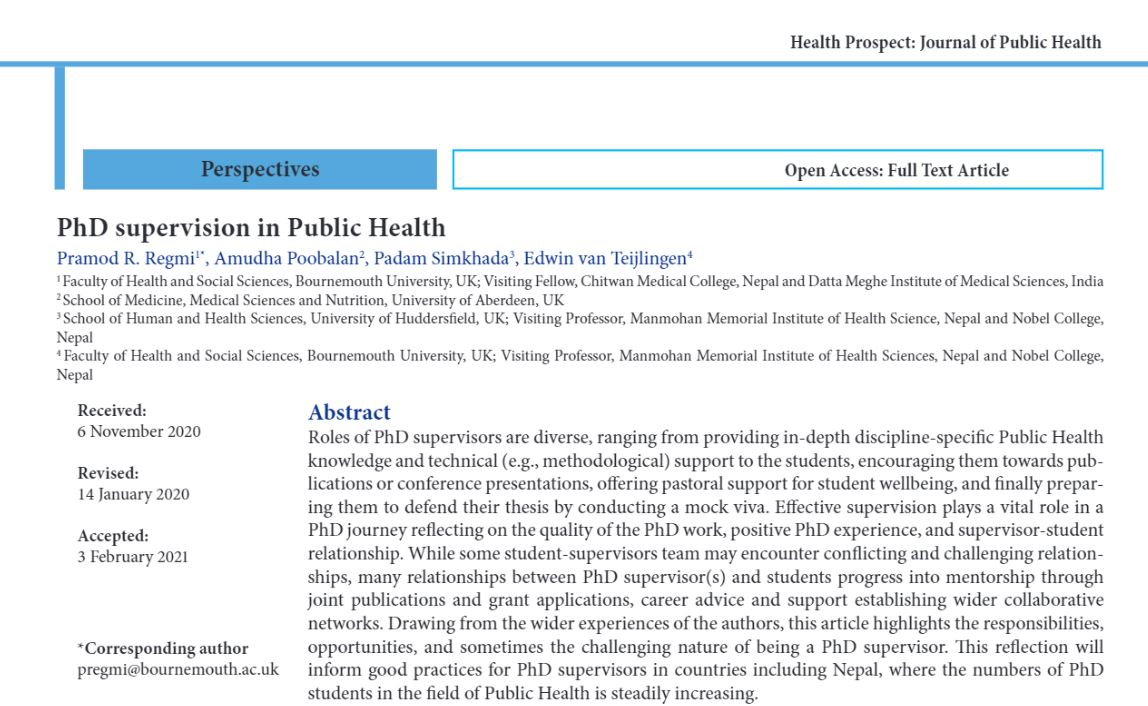 Recently, Health Prospect: Journal of Public Health published our article on ‘PhD supervision in Public Health’ [1]. The lead author is Dr. Pramod Regmi, with co-authors Prof. Padam Simkhada (FHSS Visiting Faculty) from the University of Huddersfield and Dr. Amudha Poobalan from the University of Aberdeen. The paper has a strong Aberdeen connection, the fifth oldest university in the UK. Three of us (Poobalan, van Teijlingen & Simkhada) use to work in the Department of Public Health at the University of Aberdeen (one still does), and three of us (Poobalan, Regmi & van Teijlingen) have a PhD from Aberdeen.
Recently, Health Prospect: Journal of Public Health published our article on ‘PhD supervision in Public Health’ [1]. The lead author is Dr. Pramod Regmi, with co-authors Prof. Padam Simkhada (FHSS Visiting Faculty) from the University of Huddersfield and Dr. Amudha Poobalan from the University of Aberdeen. The paper has a strong Aberdeen connection, the fifth oldest university in the UK. Three of us (Poobalan, van Teijlingen & Simkhada) use to work in the Department of Public Health at the University of Aberdeen (one still does), and three of us (Poobalan, Regmi & van Teijlingen) have a PhD from Aberdeen.
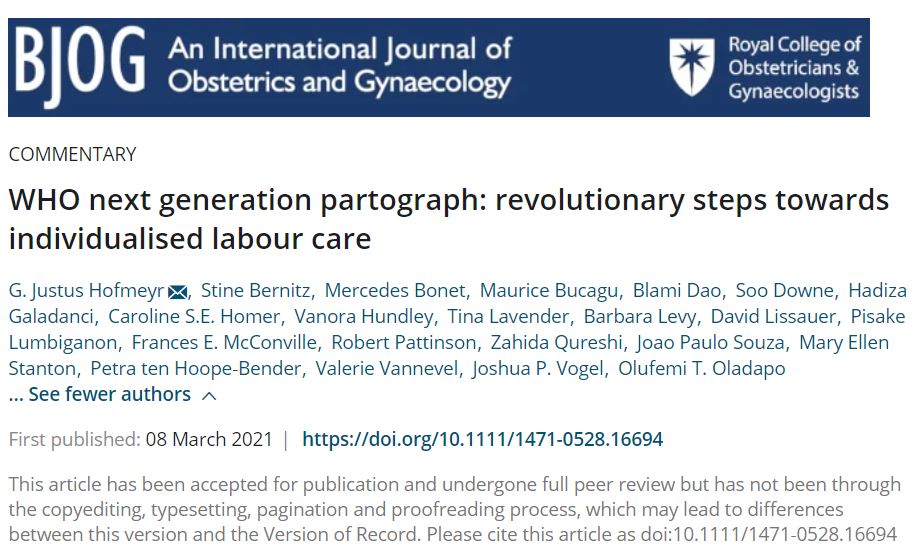







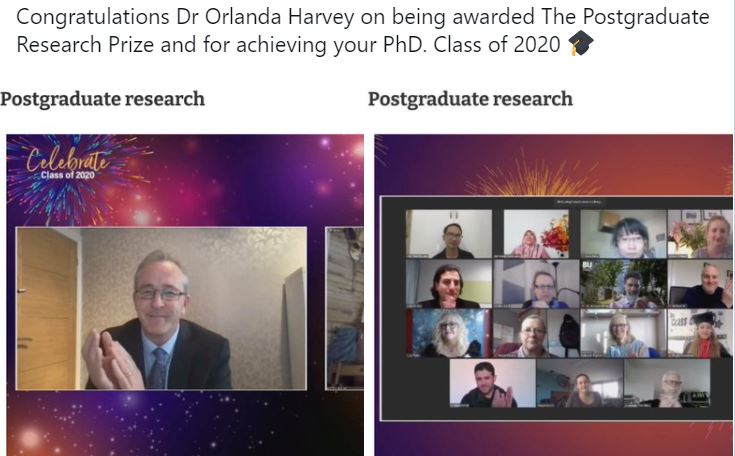


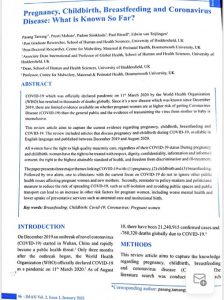
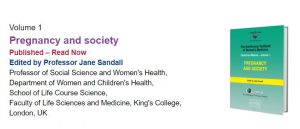
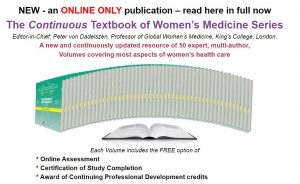
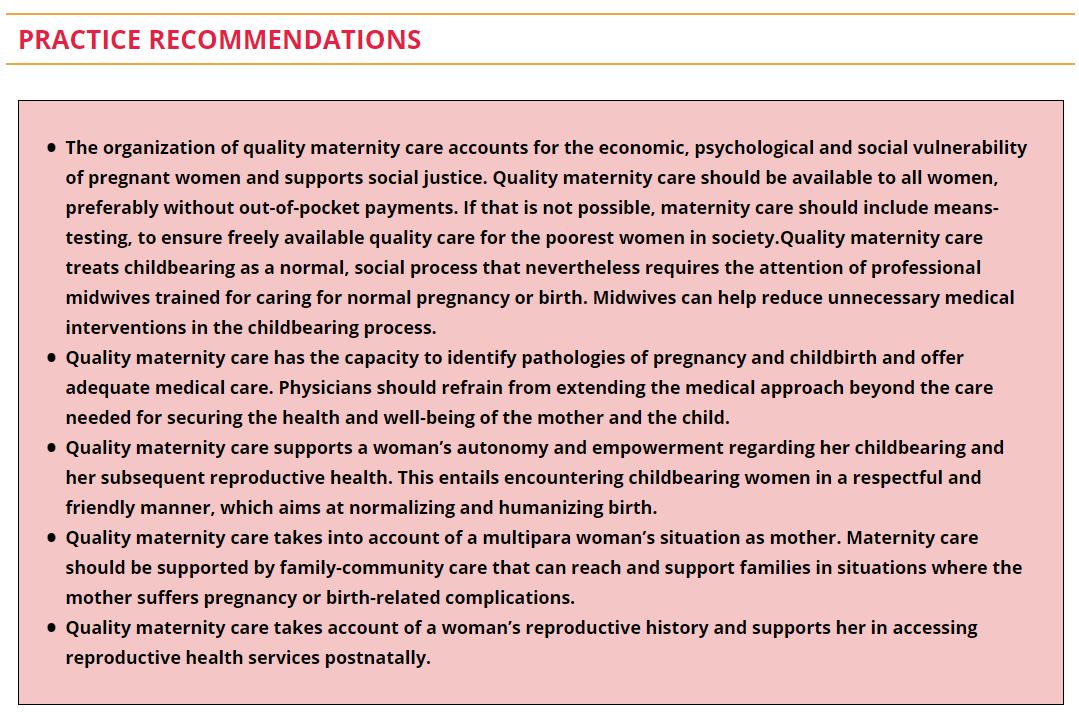

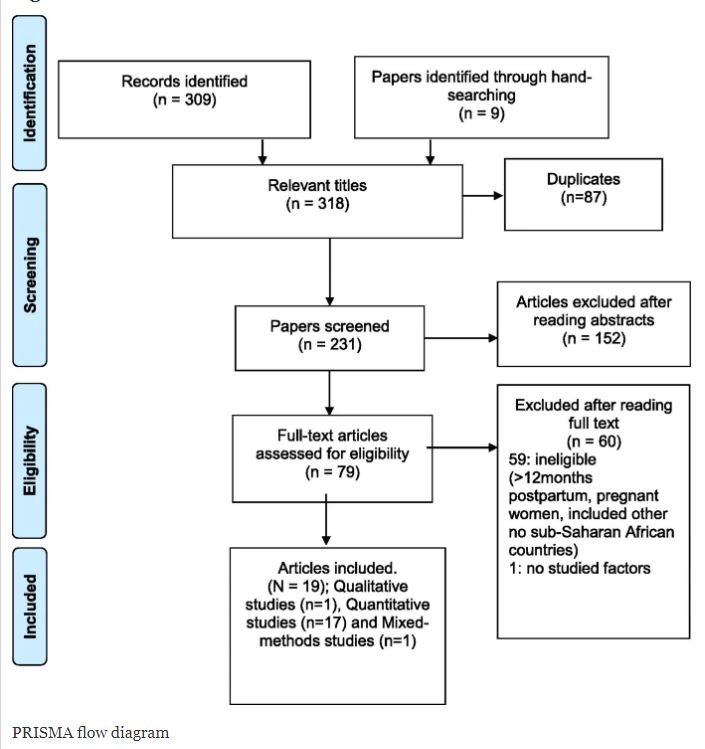
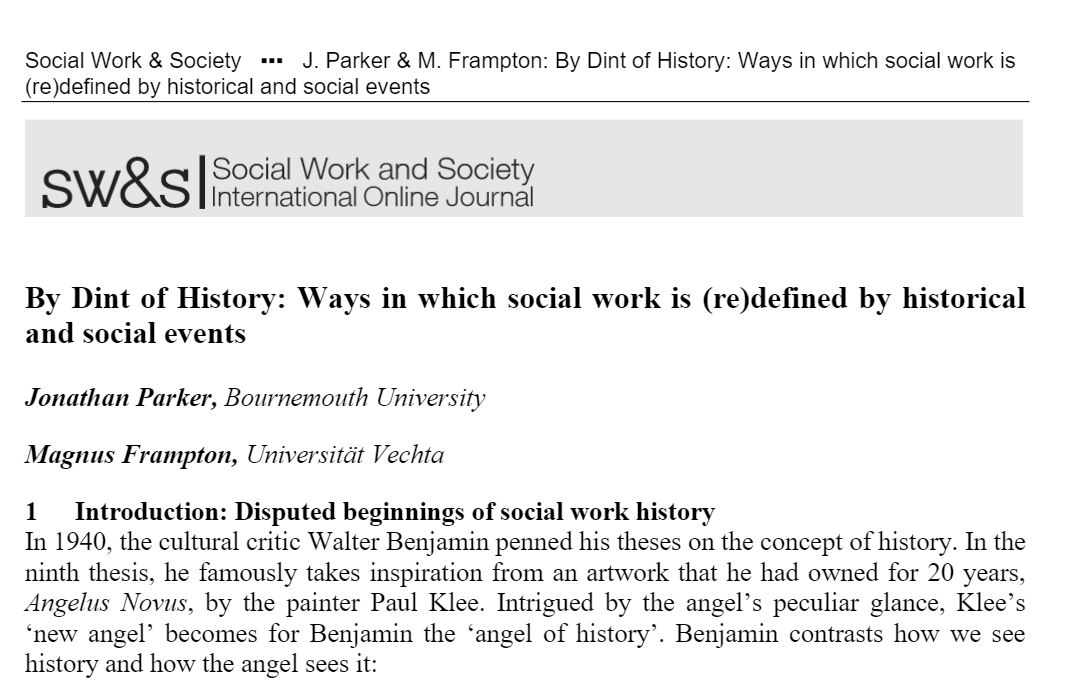

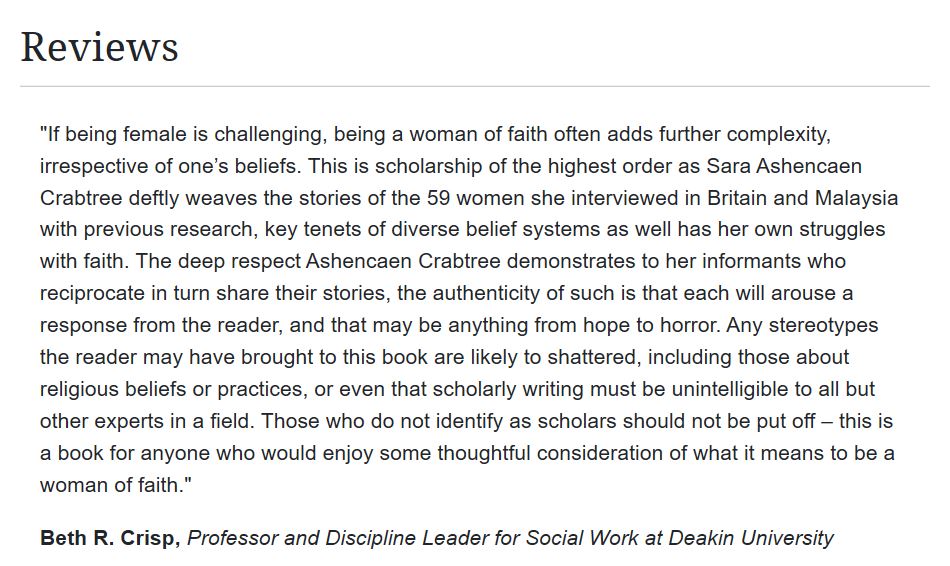











 SPROUT: From Sustainable Research to Sustainable Research Lives
SPROUT: From Sustainable Research to Sustainable Research Lives BRIAN upgrade and new look
BRIAN upgrade and new look Seeing the fruits of your labour in Bangladesh
Seeing the fruits of your labour in Bangladesh Exploring Embodied Research: Body Map Storytelling Workshop & Research Seminar
Exploring Embodied Research: Body Map Storytelling Workshop & Research Seminar Marking a Milestone: The Swash Channel Wreck Book Launch
Marking a Milestone: The Swash Channel Wreck Book Launch ECR Funding Open Call: Research Culture & Community Grant – Application Deadline Friday 12 December
ECR Funding Open Call: Research Culture & Community Grant – Application Deadline Friday 12 December MSCA Postdoctoral Fellowships 2025 Call
MSCA Postdoctoral Fellowships 2025 Call ERC Advanced Grant 2025 Webinar
ERC Advanced Grant 2025 Webinar Update on UKRO services
Update on UKRO services European research project exploring use of ‘virtual twins’ to better manage metabolic associated fatty liver disease
European research project exploring use of ‘virtual twins’ to better manage metabolic associated fatty liver disease